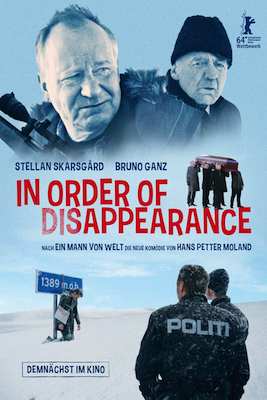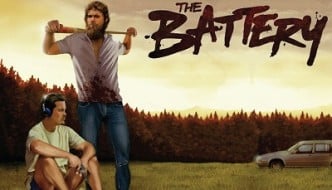LIFF28: Michel Gondry’s ‘Is the Man who is Tall Happy?’
November 24, 2014
[Image courtesy of leedsfilm.com]
Part of 28th Leeds International Film Festival (LIFF28)
5th – 20th November 2014
If you wanted to get a general feel for what Is the Man who is Tall Happy? is like before you watch it, it would be worth knowing that the title comes from a misremembered experiment into the ways in which children learn to formulate sentences. That, and far, far more is the kind of subject matter that Michel Gondry tackles in this series of interviews with noted thinker and linguist Noam Chomsky.
At first, this might sound like a formula for cinematic disaster. Language acquisition theories are not widely known for their box office pulling-power, and to any non-specialist, the kind of material that Chomsky comes out with can sound more than a little daunting. However, what unfolds from all this is a film that is at various times thought-provoking, moving and deeply, deeply interesting.
Distinguishing Is the Man… from other films of its kind is Gondry’s decision to animate the vast majority of it. In total, we are shown maybe five minutes of actual footage from the meetings between him and Noam, and the rest of the audio is played over Gondry’s own hand drawn animations. These are charming in their simplicity; drawn in a style reminiscent of doodles in a schoolboy’s margin, they flicker and weave across most of the film, adding a distinct touch of character to what could otherwise make for quite dry visual material.
What’s more, Gondry’s animations serve a couple of useful purposes. Not only do they help to clarify what could have been some dense and confusing conversations, they constantly remind the audience that what they are watching is separated from reality. At the start of the film Gondry expresses anxiety over the manipulative nature of editing and the potentially dogmatic nature of what he is about to show. By choosing to show us animations instead of actual footage, he makes it clear that this process has gone on, and therefore what we are seeing will not be completely representative of what went on between them. They show that there is no reason for us to take what knowledge Noam imparts as absolute truth, and it is ultimately up to the audience to decide which of his theories to believe.
A wide field of subjects are covered over the course of the film, from proper scientific protocols to the ways in which we comprehend the world around us. These are for the most part very interesting; Chomsky clearly knows exactly what he is talking about, and Gondry’s clear enthusiasm to engage with him means that some fascinating topics come up. However, the better moments tend to come out when Chomsky is prompted to open up about his own life. It’s during these sections that we get to hear about the more human side of this intellectual giant, from his time spent in jail to the close relationship that he has with his grandchildren. One such instance, when Chomsky is asked what makes him happy, stands out as particularly moving, as does a passage when he reflects on his marriage.
This is aided by the surprising chemistry that emerges between the two men. One might not expect a linguist and a director to have all that much in common, but Gondry successfully holds his own in this conversation and makes several intriguing points as well. There’s a hint of a teacher-pupil relationship between them, what with Gondry’s dogged enthusiasm coming up against Chomsky’s sense of world-weariness and borderline irritability.
A minor criticism would be that due to this wide-reaching approach, few of the subjects they cover are really given the proper time to gain any momentum. It would have been nice to see just a little more of the discussion on subjects such as Chomsky’s views on the founding and modern purpose of religion, or more time devoted to the more personal aspects of the conversation. However, to analyse these topics in the depth they perhaps deserve would require a high level of understanding on the behalf of the viewer, so it might be for the best that it remains shorter in order to avoid being exclusionary.
Gondry’s labour of love might not be to everyone’s taste, but for those with a keen curiosity about the world, it is well worth a watch.
Adam Button
More about ‘Is the Man who is Tall Happy?’




Comments